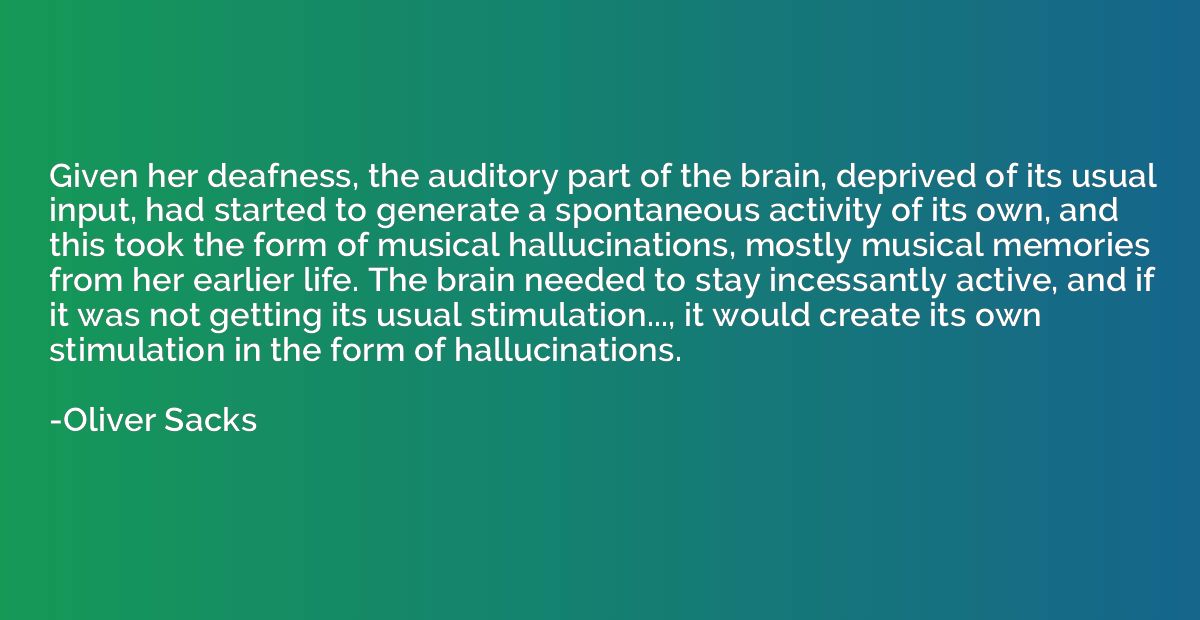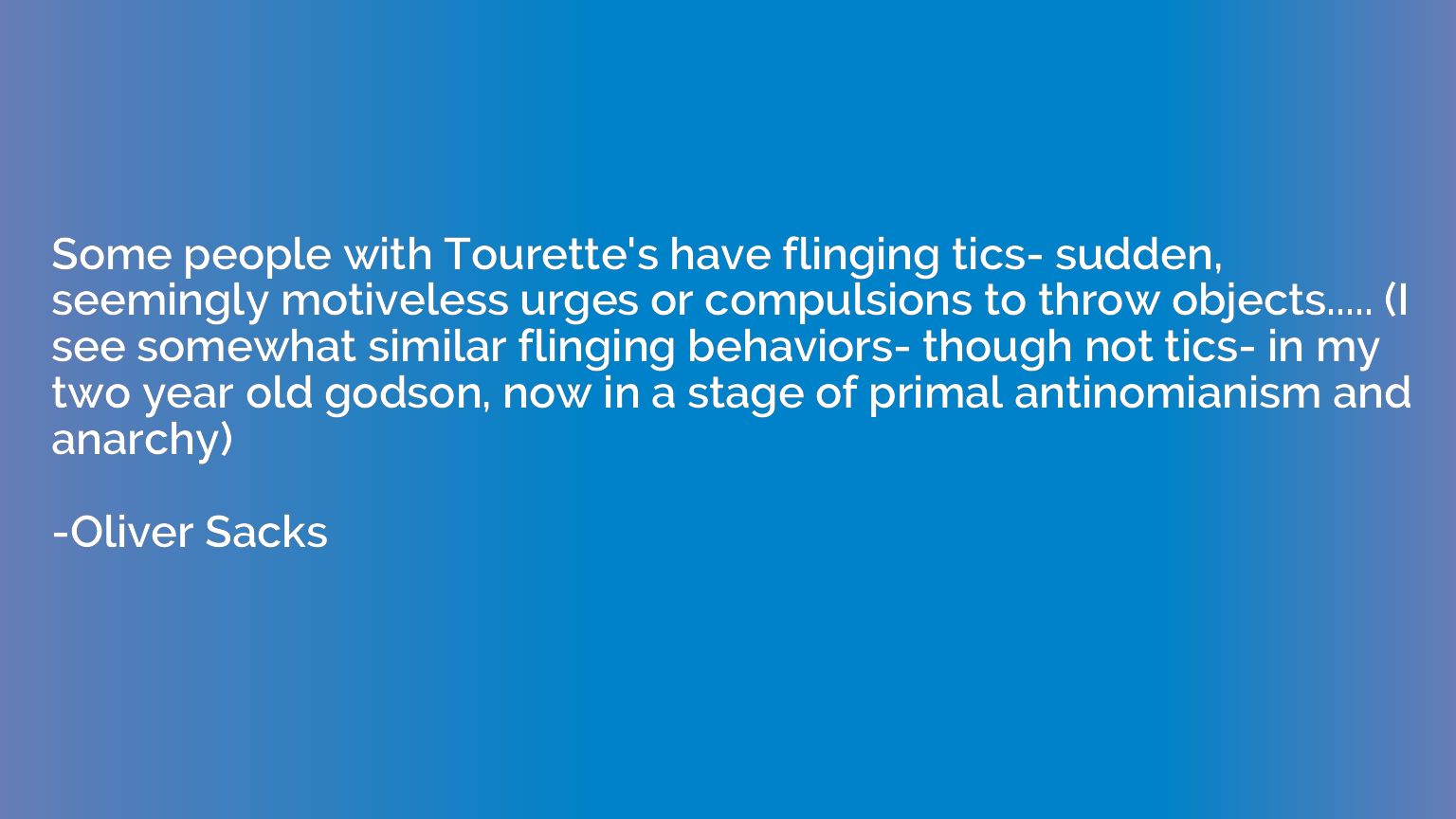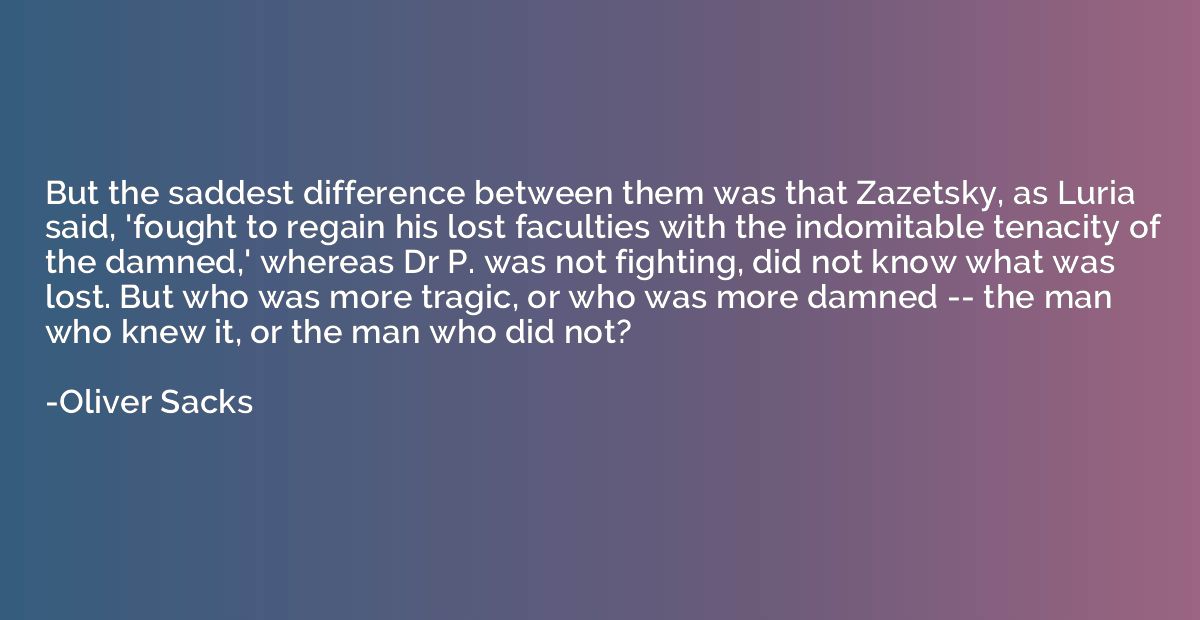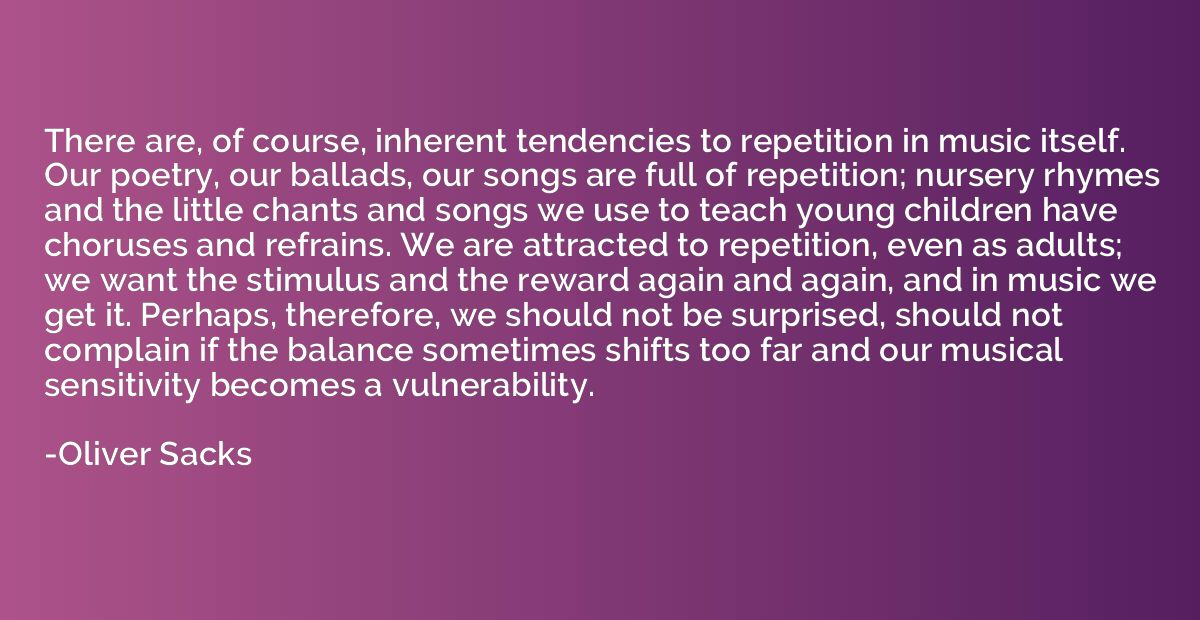Oliver Sacks Quotes
A collection of quotes by Oliver Sacks.
Oliver Sacks (1933-2015) was a renowned British-American neurologist, writer, and professor. Born in London, England, Sacks developed an early fascination with science and literature. He attended the University of Oxford, where he earned his medical degree in 1960.
Sacks moved to the United States in the 1960s and began working as a consulting neurologist, specializing in clinical neurology and psychiatry. Throughout his career, he made significant contributions in the field of neurology, particularly in the study of unusual neurological disorders. Sacks was particularly interested in the human brain's ability to adapt and its potential for healing.
His groundbreaking work reached a wide audience through his captivating and empathetic writing style. Sacks authored numerous books, including the bestselling "The Man Who Mistook His Wife for a Hat," which explored the intricate and often perplexing world of neurological disorders. His ability to translate complex medical concepts into accessible language made him a beloved figure, appreciated by both medical professionals and the general public.
In addition to his writing, Sacks was a passionate advocate for his patients and championed the humane treatment of individuals with neurological conditions. He believed in embracing the individuality of each patient, recognizing the profound impact such conditions had on their lives. Oliver Sacks' work has left a lasting legacy, not only in the field of neurology but also in the hearts of those he touched with his compassion and storytelling.






